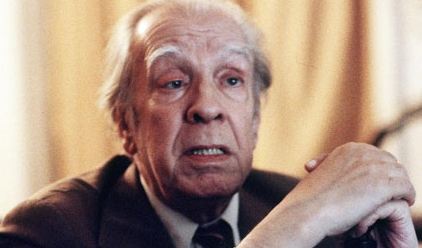Authors who have published five books or invested 20 years in ’literary creation’ would get £565 a month under the plan
Argentina is to consider granting a special pension to writers on the grounds that they generate “social richness” but often end up impoverished.
The lower house of congress will study a proposal presented on Tuesday that would give published authors a monthly stipend of £565, well above the state minimum pension.
The idea, inspired by similar initiatives in France and Spain, would offer the pension to those who are aged over 65 and have published at least five books or invested more than 20 years in “literary creation”.
“Writers support the general culture of a community. They are individual creators who generate a sort of social richness that is difficult to quantify,” Carlos Heller, a deputy from the socialist party who sponsored the initiative, told the BBC.
Some analysts said the proposal, coming from a party which supports the president, Cristina Kirchner, appeared linked to her expected run for a second term in October’s election. Recent populist measures include sending trucks with cheaply priced meat to poor neighbourhoods.
Mario Goloboff, a writer and university professor, said the pension would remedy a cultural anomaly. “The state grants prestige to intellectuals but that isn’t payment.” He said hundreds of Argentine writers dedicated their lives to literary output only to struggle financially in old age, and “they deserve a pension”.
Graciela Araoz, head of the Argentine Writers’ Society, said the law would enable elderly authors “to live with dignity for the rest of their lives”.
The city of Buenos Aires, proud of a national literary tradition which boasts Roberto Arlt, Julio Cortázar and Jorge Luis Borges, approved a similar proposal in 2006 which granted a monthly pension of almost £400.
Of around 100 applicants to date 72 have been approved, a low number which should calm those worried about the fiscal implications of the scheme going national, Victor Redondo, a poet and member of the Argentine Writers’ Society, told the BBC.
“It is not easy to publish five books in Argentina. They have to be registered with ISBN numbers and published by publishing houses. A commission of legislators, academics and writers would judge whether an applicant had invested more than 20 years in literary creation and weed out those whose books were self-published.
Jorge Boccanera, one of the dozens of published writers in congress, welcomed the proposed legislation, telling the newspaper Clarin it would boost “imagination and the comprehension of the world”. Vicente Battista, another author and member of congress, was even more lyrical, saying congress had a piece of “utopia” in its hands.
Argentines consider their country the literary capital of South America and like to name streets after famous authors. The number of titles published annually has more than doubled in the past decade.
Argentine fiction is known for cerebral plots and philosophising but a new generation of writers has embraced topics such as sex, the internet and Dan Brown-style stories.
The pension proposal comes in the middle of the Buenos Aires book fair, one of the world’s biggest literary expos. Some ministers and pro-government intellectuals criticised an invitation to Mario Vargas Llosa because of his criticisms of leftwing governments in Latin America, including Kirchner’s.
The president dampened the row by saying the Nobel laureate had every right to attend, earning thanks from the Peruvian novelist in his speech which opened the fair.
Rory Carroll, Latin America correspondent
guardian.co.uk, Wednesday 27 April 2011 17.26 BST
See online: Argentina considers paying writers a pension

